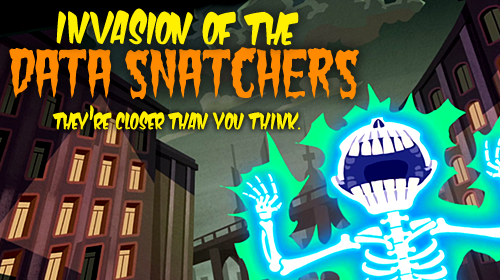Families of Trinidadian Men Killed in Illegal Boat Strike Sue Trump Administration
BOSTON, MA – Today, family members of two Trinidadian men killed in a U.S. missile strike in October are suing the U.S. government for wrongful death and extrajudicial killing. Chad Joseph, 26, and Rishi Samaroo, 41, were killed in one of the 36 strikes the Trump administration has launched against civilian boats in the Caribbean and Pacific Ocean. At least 125 people have been killed in these strikes since September 2025.
On October 14, Mr. Joseph and Mr. Samaroo were returning from Venezuela to their homes in Las Cuevas, Trinidad and Tobago when a missile struck their boat. Four other people also died in the strike. The plaintiffs are Lenore Burnley, Mr. Joseph’s mother, and Sallycar Korasingh, Mr. Samaroo’s sister. They bring this case on behalf of surviving members of Mr. Joseph’s and Mr. Samaroo’s families.
“Chad was a loving and caring son who was always there for me, for his wife and children, and for our whole family. I miss him terribly. We all do,” said Mr. Joseph’s mother, Lenore Burnley. “We know this lawsuit won’t bring Chad back to us, but we’re trusting God to carry us through this, and we hope that speaking out will help get us some truth and closure.”
They bring their claims under two federal statutes: the Death on the High Seas Act, a law that allows family members to sue for wrongful deaths occurring on the high seas, and the Alien Tort Statute, which allows foreign citizens to sue in U.S. federal courts for violations of well-recognized human rights norms.
“Rishi used to call our family almost every day, and then one day he disappeared, and we never heard from him again,” said Sallycar Korasingh, Rishi Samaroo’s sister. “Rishi was a hardworking man who paid his debt to society and was just trying to get back on his feet again and to make a decent living in Venezuela to help provide for his family. If the U.S. government believed Rishi had done anything wrong, it should have arrested, charged, and detained him, not murdered him. They must be held accountable.”
In the complaint filed today, lawyers from the American Civil Liberties Union, the Center for Constitutional Rights, Professor Jonathan Hafetz of Seton Hall Law School, and the ACLU of Massachusetts detail why the boat strikes are “manifestly unlawful.” The U.S. is not engaged in an armed conflict, as the government has implausibly claimed, and even during wartime, these strikes would still be illegal under the laws of war, which constrain the indiscriminate and direct use of force against civilians and civilian vessels.
“The Trump administration’s boat strikes are the heinous acts of people who claim they can abuse their power with impunity around the world,” said Brett Max Kaufman, senior counsel at the ACLU. “In seeking justice for the senseless killing of their loved ones, our clients are bravely demanding accountability for their devastating losses and standing up against the administration’s assault on the rule of law.”
President Trump and Secretary of Defense Pete Hegseth have publicly boasted about and published videos of the strikes — including the strike that killed Mr. Joseph and Mr. Samaroo. However, the strikes’ victims have remained largely anonymous, seen only as specks on a screen. The Trinidadian Foreign Minister Sean Sobers told a local news outlet after the strike that “the government has no information linking Joseph or Samaroo to illegal activities.”
“It is absurd and dangerous for any state to just unilaterally proclaim that a ‘war’ exists in order to deploy lethal military force,” said Baher Azmy, legal director of the Center for Constitutional Rights. “These are lawless killings in cold blood; killings for sport and killings for theater, which is why we need a court of law to proclaim what is true and constrain what is lawless. This is a critical step in ensuring accountability, while the individuals responsible may ultimately be answerable criminally for murder and war crimes.”
Prior to his murder, Mr. Joseph lived with his wife and their three children in Las Cuevas, Trinidad. To support his family, he often traveled to Venezuela to fish and for farmwork. On October 12, he called his wife to let her know that he had found a boat ride home from Venezuela and would see her in a couple of days. On October 14, his wife and Ms. Burnley saw social media reports of a boat strike; fearing that the boat was his, they repeatedly called him, but got no reply. His family has not heard from him since.
Mr. Samaroo was born in El Soccorro, Trinidad, where his elderly father, eight younger siblings, and two of his three sons still reside. His elderly mother lives nearby in San Juan. In 2024, he was released early on parole after serving a 15-year sentence for his participation in a homicide. Following his release, Mr. Samaroo moved to Las Cuevas, where he fished and worked in construction to support himself and his family. In August 2025, he let his family know that he was working on a farm in Venezuela, taking care of goats and cows and making cheese. He would call his family almost every day when he was in Venezuela, and in an Oct. 12 call with Ms. Korasingh, he told her he was returning home to Trinidad and would see her in a few days because their mother had fallen ill, and he wanted to help take care of her. That was the last time Ms. Korasingh or anyone else in the family heard from him.
“Using military force to kill Chad and Rishi violates the most elementary principles of international law,” said Jonathan Hafetz, a Professor at Seton Hall Law School. “People may not simply be gunned down by the government, and the Trump administration’s claims to the contrary risk making America a pariah state.”
Because non-citizens may bring admiralty claims in any federal court, the lawsuit was filed in Massachusetts, where the federal bench has a long history of deciding admiralty cases.“The administration's lethal boat strikes violate our collective understanding of right and wrong,” said Jessie Rossman, legal director of the ACLU of Massachusetts. “Rishi and Chad wanted only to get home safely to their loved ones; the unconscionable attack on their boat prevented them from doing so. It is imperative that we hold this administration accountable, both for their families and for the rule of law itself.”






